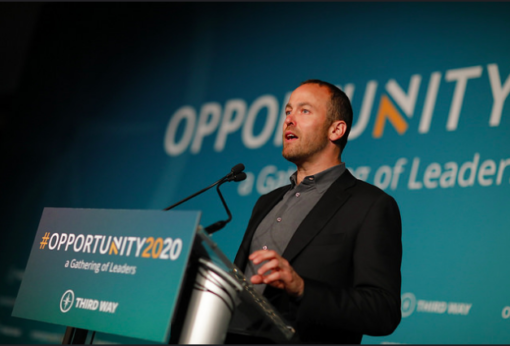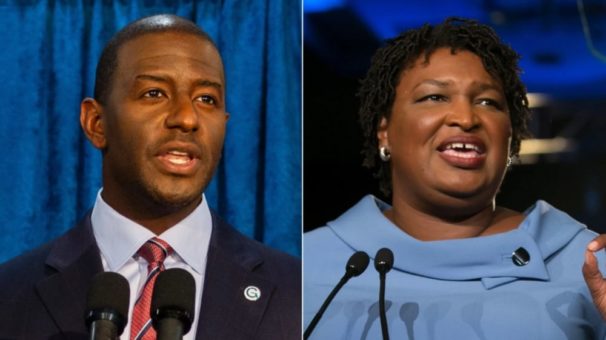
Bernie Sanders has a sexism problem. Bernie Sanders doesn’t get black voters. Bernie Sanders is becoming unlikable. Bernie Sanders is too old. Bernie Sanders is too white.
The television talk circuit, newspaper op-ed pages, and Twitter are all filled these days with analysts eagerly making the case that Democratic voters shouldn’t give the independent senator from Vermont a second shot at the presidency in 2020.
It’s time to realize, detractors say, that his run for the Democratic nomination was never the people-powered “political revolution” it claimed to be. Instead, it was just another campaign machine defined by racial blind spots, unequal pay for women staff, the downplaying of harassment claims, a male-dominated management, and the like.
There are some valid points here, for sure. Sanders himself essentially admitted his messaging was a bit too narrow, prompting him to broaden his policy focus to include criminal justice reform and poverty in minority communities in 2016. (It’s worth noting, though, that extensive research has put to rest the myth that black voters don’t like Sanders.) And his flat-footed response to recent allegations of sexism inside the campaign that he would “do better next time,” can rightly be characterized, if we’re being generous, as more than a bit tone deaf.
So Bernie Sanders isn’t flawless. His campaign had some problems. He’s still got some problems.
Of course, few serious people in the Sanders camp were ever claiming that Bernie was the savior to lead us into utopia. Sure, some adherents have built him up as the socialist saint who would have torn down the neoliberal establishment in the Democratic Party, overturned capitalist corruption on Wall Street, and, if he hadn’t been “cheated” out of the nomination, sent Donald Trump back to his gold-encrusted Manhattan perch atop Trump Tower.
But even if we decide to set aside the overhyped promises of the Sanders zealots, does that mean we should jump all the way to the other extreme and conclude that Bernie Sanders is not a real progressive, as some who adhere to identity politics argue? Should we really turn our backs on the message of class struggle economics and coalition politics that were the heart and soul of his campaign?

That’s exactly what the Wall Street Democrats want us to do. And whether some progressives realize it or nor, when they expend so much effort tearing down Sanders, they’re helping make the case.
Last summer, Third Way—the “center-left” think tank that represents the interests of corporate America inside the Democratic Party—held an exclusive, invitation-only conference to tell Democrats to stop talking about inequality. Quit worrying about how much the rich have and just encourage the working class and middle class to focus on moving themselves up the ladder—become “opportunity Democrats.”
The conference was bankrolled by New York real estate titan and billionaire Winston Fisher. The clear target of the whole shindig was the class struggle platform that Sanders and the movement behind him built in 2016, strengthened in 2018, and are set to deploy again in 2020.
“Once again, the time has come to mend, but not end, capitalism for a new era,” Third Way President Jon Cowan told the crowd of movers and shakers. Ohio Congressman (and potential presidential candidate) Tim Ryan was even more blunt: “You’re not going to make me hate somebody just because they’re rich. I want to be rich!”
Rich people are not the problem. Wall Street is not the problem. An unfair economy is not the problem. No, for Third Way, we need to worry about adapting people for life under modern capitalism. Stop concerning ourselves with the fanciful idea there is any alternative.
Third Way says we need things like private pensions, not a stronger Social Security program. A Small Business Bill of Rights, not a beefed-up regulatory regime for the big banks and hedge funds. A negotiated deal with Republicans to bring “stability” to our current health care system, not Medicare for All.
It’s the same message they’ve been selling since they were called the DLC back in the 1980s, polished up for a new context. Back then, they were also saying the Democratic Party had to focus on the concerns of white people in middle America by focusing on “responsibility” (i.e. oppose welfare and food stamps). Steer clear of the concerns of black people in the big cities, immigrants, or fringe constituencies like the gays and lesbians. And perhaps above all, don’t let labor unions call the shots when it comes to the economy.
Of course, demographics have changed. It’s no longer feasible, even for these right-wing Democrats, to stick to that approach. They’re now comfortable with embracing a candidate of any race, gender, creed, religion, or sexuality, as long as that candidate sticks to a script that doesn’t challenge the economic status quo.
They’re amenable to many of those in the diverse stable of rising Democratic stars, like Sens. Kamala Harris, Kirsten Gillibrand, and Cory Booker, as long as none of them sticks too persistently to supporting single-payer health care. Even Elizabeth Warren, who Third Way spent so much time disparaging in 2016, might be okay with them. After all, “senators look and sound different as presidential candidates.”
But there’s one name that remains a no-go. “The exception is Senator Sanders. We’re open to everybody except for him,” says Third Way vice president Matt Bennett.
The strenuous opposition has nothing to do with any accusations of sexism against the Sanders campaign, nor his blind spots on racial equality, nor his age. Sanders is anathema precisely because he helped build a movement of working-class people that, despite what some may argue, crossed racial, ethnic, and gender lines. It’s a movement that has challenged both politics as usual and chipped away at the notion that capitalism should never be questioned.

Indeed, no one at a national level in recent memory has more consistently called out the crimes and corruption of the ruling class on Wall Street and in Washington than Bernie Sanders. But the vision represented by the Sanders campaign is bigger than Sanders the candidate. It’s a program that goes beyond electoral politics and aims at empowering working-class people to unite and fight for their own interests against a system that has been long tilted against them.
Whatever legitimate criticisms might be made of Bernie or his campaign—and there are plenty—it’s important to keep in mind the larger context in which attacks on him are taking place. The target for many is not actually Bernie Sanders the imperfect person, but rather the economic program and class-based politics that nearly overturned the 2016 Democratic presidential primary.
That is exactly what the Wall Street Democrats are determined to prevent happening again. Are progressives going to help or hinder them?
The way forward is to perfect and strengthen the political revolution of 2016. Integrate the intersectionalities of class, race, gender, immigration status, and sexuality into the program’s DNA. Talk about how the failures of capitalism affect all people—and how they affect different groups of people differently. Develop policy proposals that address the common and the specific.
Above all, don’t get too caught up on Bernie Sanders the person. The struggle ahead is still a long one, and Bernie isn’t always going to be around to lead it. Focus on the Sanders platform, making it stronger and more comprehensive. Expand the movement of people for whom questioning capitalism is now common sense.
Remember who the real enemy is. Hint: It’s not Bernie Sanders.












Comments